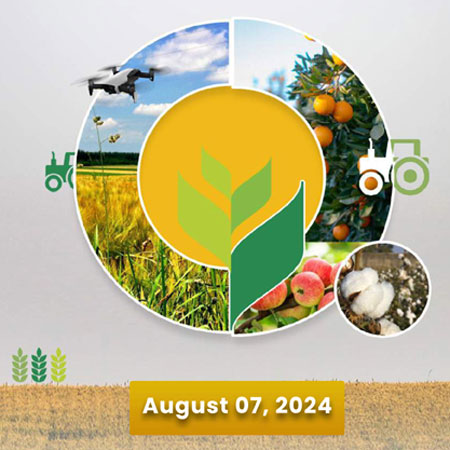
Pernod Ricard India (PRI), corporate social responsibility (CSR) programs, under the banner of WAL (Water, Agriculture, Livelihoods), is having a profound impact on over 10,000 farmers each year, fostering resilience, innovation, and inclusivity within the agricultural sector. It is driving transformative change in rural India through its focused initiatives in sustainable agriculture and community empowerment.
At the heart of the WAL initiative is a commitment to ensuring year-round access to water for rural communities. Since 2019, PRI has built 2,355 water recharge structures, which have created the potential to recharge 4,484 million liter of groundwater. This effort not only secures water supplies for farming communities but also promotes micro-irrigation techniques, improving crop production, enhancing drought resilience, and optimising resource use. As a result, PRI has helped boost agricultural yields by 20% while simultaneously reducing input costs by 22%, making farming more sustainable and profitable.
PRI’s emphasis on collective success is particularly evident through its work with Farmer Producer Organisations (FPOs). With eight such organisations across five states—Rajasthan, Maharashtra, Madhya Pradesh, Punjab, and Uttar Pradesh—PRI is enhancing the livelihoods of more than 4,000 farmers in 150 villages. These FPOs, which are led by small and marginal farmers, foster collaboration and provide members with access to crucial resources, such as scientific farming knowledge, inputs, credit, and market intelligence. By working together, farmers can share best practices, improve productivity, and gain better bargaining power in the marketplace.
A key aspect of PRI’s approach is its focus on women’s empowerment. The company is actively nurturing entrepreneurial leadership among rural women, helping them create and manage micro-enterprises. In Nashik, for example, women have started thriving businesses like tomato polytunnels, flour mills, and sewai machines in three villages, involving seven self-help groups (SHGs) and benefiting 60 women. PRI’s initiatives in Kanpur have similarly transformed traditional skills into viable businesses, such as papad-making and mustard oil production in Behror. Today, women make up 50% of the board members and 35% of the shareholders in PRI’s FPOs, rewriting the narrative of gender equity in rural economies.
Gagandeep Sethi, Senior Vice President of Integrated Operations and Sustainability & Responsibility (S&R), explained, “At Pernod Ricard India, our S&R initiatives are guided by our ‘Good Times from a Good Place’ philosophy. The WAL initiative is central to our sustainability efforts, reflecting our deep commitment to sustainable agriculture. By empowering communities with water security, innovative farming practices, and data-driven insights, we are making a meaningful impact. Through IoT technology and AI-powered analytics, we enable farmers to optimise resources and track sustainability metrics with precision.”
PRI’s commitment to empowering farmers extends through its Community Resource Centres (CRCs), which serve as critical knowledge hubs, bridging traditional farming techniques with modern practices. These centres offer targeted training programs, real-time market insights, and essential resources, allowing farmers to make informed decisions that improve crop yields and ensure long-term sustainability. Additionally, PRI’s eight Kisan Sansadhan Kendras (Custom Hiring Centres) provide mechanised tools to 4,250 farmers across 82 villages, making agricultural mechanisation accessible and boosting productivity.











